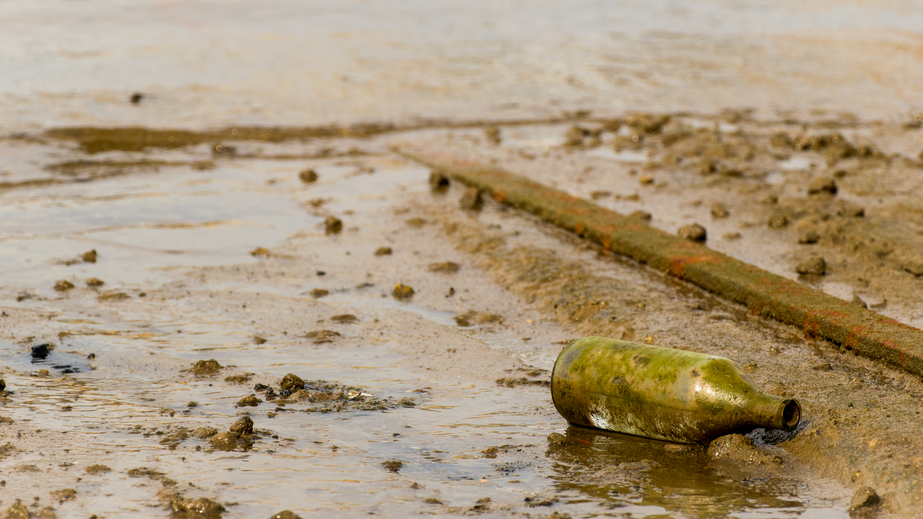New Brunswick Environmental & Ethics/Regulatory 30 PDH Discount Package
In Situ Thermal Remediation - Part 1 (C09-006)
In-Situ Air Sparging (C14-001)
General Principles of Engineering Ethics & Statutes for New Brunswick Professional Engineers (NB3-001)

This online engineering PDH course provides basic information on environmental quality and protection in the context of existing and proposed border security infrastructure and measures.
Border security is an important national priority, and environmental protection in the border region is of critical importance, given the rich natural resource endowments of the region. The shape and form of security infrastructure installed along the border is a critical factor affecting these areas of special concern. Additional installation of security infrastructure along the border will have a large impact on the region, presenting both challenges and opportunities to enhance security while preserving or even improving environmental sustainability.
There are mainly five key overlapping challenges in which environmental protection intersects with border security. These include, tourism and recreation economy; habitat integrity and wildlife corridors; water management; flooding, trash and sediment control; Hazmat and emergency response; and air quality.
This 4 PDH online course is applicable to environmental engineers who are interested in learning more about improving border security infrastructure while preserving environmental sustainability in the region.
This P.Eng. continuing education course is intended to provide you with the following specific knowledge and skills:
- Familiarizing with the overlapping challenges between border security and environmental protection
- Gaining a general overview on the demographic and economic context in the border region
- Understanding the environmental protection and border security context
- Learning about the challenges and opportunities presented in the region
- Understanding the emergency response management and agreements at the federal, state and local levels
- Exploring several case studies in different areas along the border region
Upon successful completion of the quiz, print your Certificate of Completion instantly. (Note: if you are paying by check or money order, you will be able to print it after we receive your payment.) For your convenience, we will also email it to you. Please note that you can log in to your account at any time to access and print your Certificate of Completion.

This online engineering PDH course provides guidance for the appropriate screening and selection of in situ thermal remediation (ISTR) technologies, including steam enhanced extraction injection, electrical resistivity heating, and thermal conductive heating.
A significant number of sites are contaminated with high level of organic contaminants. These contaminated sites include hundreds of Federal installations and thousands of private facilities. The contaminants in these sites, especially non-aqueous phase liquids (NAPL), have been difficult to treat with conventional technologies such as groundwater extraction, bioremediation and soil vapor extraction. More aggressive technologies have been sought to address these conditions. These technologies include in situ chemical oxidation, surfactant/solvent flushing, and ISTR methods. ISTR methods represent the most aggressive and effective of these techniques.
This 9 PDH online course is applicable to environmental engineers, geologists, hydrogeologist and soil scientists who are interested in improving their knowledge on the appropriate use of in situ thermal remediation (ISTR) technologies.
This P.Eng. continuing education course is intended to provide you with the following specific knowledge and skills:
- Familiarizing with site characterization data necessary for the screening and designing of remediation systems using the three ISTR technologies (TCH, ERH, SEE)
- Gaining a general overview of multiphase flow and multi-component mass transfer in the subsurface and how elevated temperatures can enhance these processes for the removal of contaminants
- Learning about technology screening and feasibility studies for ISTR
- Understanding bench and pilot scale studies to determine if ISTR is an appropriate means to remediate a site
Upon successful completion of the quiz, print your Certificate of Completion instantly. (Note: if you are paying by check or money order, you will be able to print it after we receive your payment.) For your convenience, we will also email it to you. Please note that you can log in to your account at any time to access and print your Certificate of Completion.

This online engineering PDH course provides guidance for evaluation of the feasibility of in-situ air sparging (IAS) for remediation of contaminated groundwater and soil. This course also describes design and operational considerations for IAS systems.
In-Situ Air Sparging (IAS) is a rapidly emerging remediation technology for treating contaminants in saturated zone soils and groundwater. It is a relatively easy technology to implement and it is well known to regulatory agencies. IAS involves the injection of air, pure oxygen, or other gases below the water table which may result in the removal of contaminants through volatilization or bioremediation. In a less common application, IAS can also be used to immobilize contaminants through chemical changes such as precipitation.
This 14 PDH online course is intended for civil and environmental engineers as well as other technical professionals interested in learning about the design, operation, and feasibility of IAS systems.
This P.Eng. continuing education course is intended to provide you with the following specific knowledge and skills:
- Learning about the background of IAS
- Familiarizing with the underlying physical process and technology used in IAS
- Understanding the basics of feasibility evaluations and site characterization
- Gaining insight into pilot testing guidance and strategies
- Familiarizing with design considerations for IAS
- Learning about operation and maintenance requirements for IAS systems
- Familiarizing with IAS system shutdown strategies
- Gaining insight into administrative issues such as regulations, patents, and safety
Upon successful completion of the quiz, print your Certificate of Completion instantly. (Note: if you are paying by check or money order, you will be able to print it after we receive your payment.) For your convenience, we will also email it to you. Please note that you can log in to your account at any time to access and print your Certificate of Completion.

This online engineering PDH ethics course presents the principles of engineering ethics and statutes for New Brunswick Professional Engineers.
Engineering has a direct and vital impact on the quality of life for all people, which is why it is important for engineers to put the interests and safety of the public ahead of their own, and maintain honesty and integrity at all times. Accordingly, several guidelines were established to help engineers conduct themselves ethically in their line of duty.
This course will address the code of ethics that every engineer is expected to live by when practicing their profession. This course also provides an overview of APEGNB’s general statutes and regulatory laws. It will also present unique and randomly selected ethical studies to demonstrate ethical challenges for professional engineers and alternatives to address these challenges.
This 3 PDH online course is applicable to Professional Engineers licensed in New Brunswick and who are required to demonstrate continuing professional competency in ethical practice and regulatory learning as a condition of their license renewal.
This online course is intended to provide you with the following specific knowledge and skills:
- Familiarizing with the code of ethics for engineers
- Familiarizing with APEGNB’s general statutes and regulatory laws
- Understanding professional ethical practices through presenting realistic case studies
Upon successful completion of the quiz, print your Certificate of Completion instantly. (Note: if you are paying by check or money order, you will be able to print it after we receive your payment.) For your convenience, we will also email it to you. Please note that you can log in to your account at any time to access and print your Certificate of Completion.